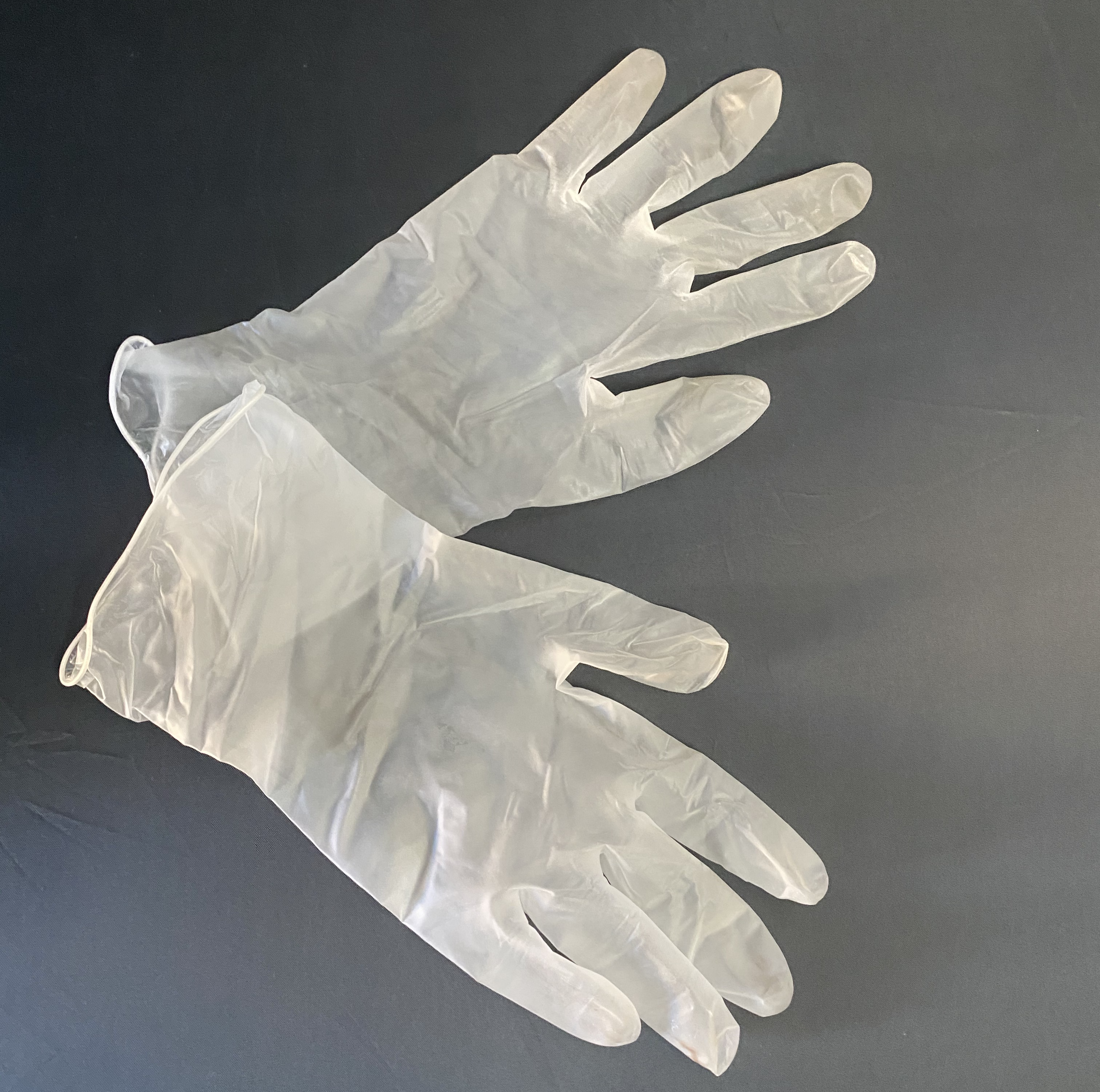
Stanford ME310 project wraps up with EXPE – Online
- Post by: Christian Johansson
- 22nd June 2020
- 3 Comments
ReGlove, a circular solution for recycling and remanufacturing Personal Protective Equipment in the form of single-use gloves made from a special form of Polyvinyl alcohol. The solutions consist of machines that are designed to facilitate the loop from cleaning and sterilizing used material to a remanufacturing plant, where the material, in liquid form, is molded into a new glove. By packing the machines needed in a Volvo or Mack truck that you can then drive on site, you have a rolling glove factory that can be used to allow healthcare institutions to be self-sufficient and to a greater extent independent of external deliveries to their operations.
—> ReGlove enters the James Dyson Award <—
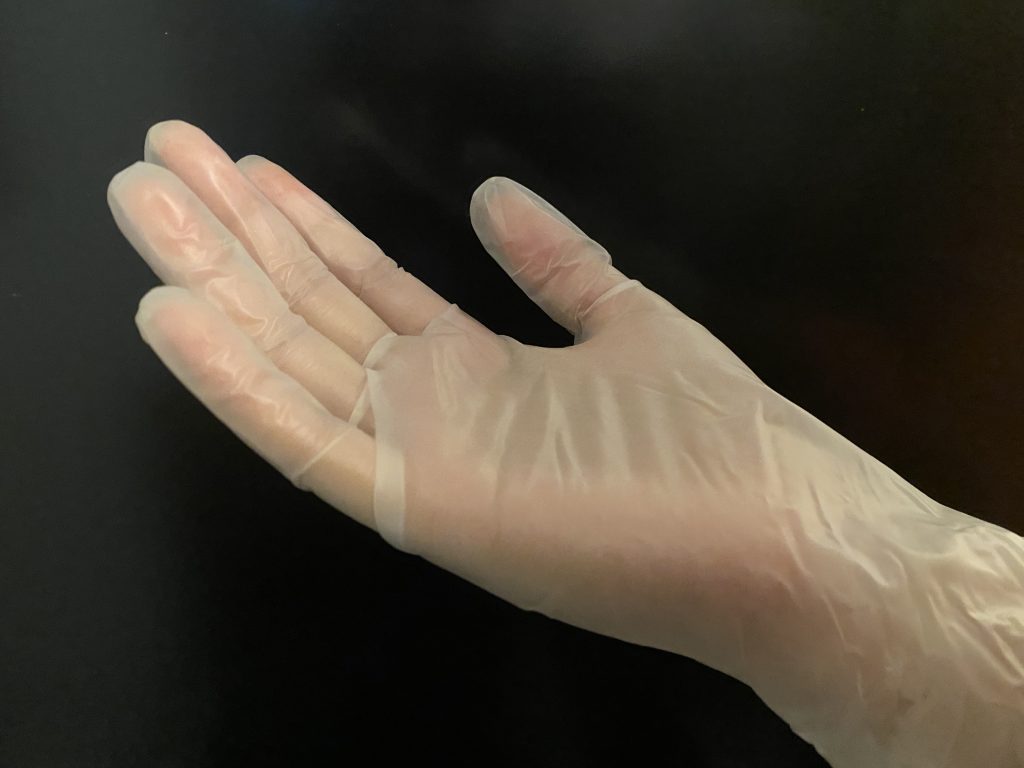
Around this time of the year 8 teams usually descend in Stanford, California at the heart of Silicon Valley to present the results of their 8-month long Global Innovation projects in the course ME310. With liaisons, academics, the general public and even investors from the Silicon Valley innovation ecosystem coming together it is an eagerly anticipated event by all. This year, however – due to the Corona Pandemic – plans were altered to host the presentations from all over the world via online conferencing solutions.
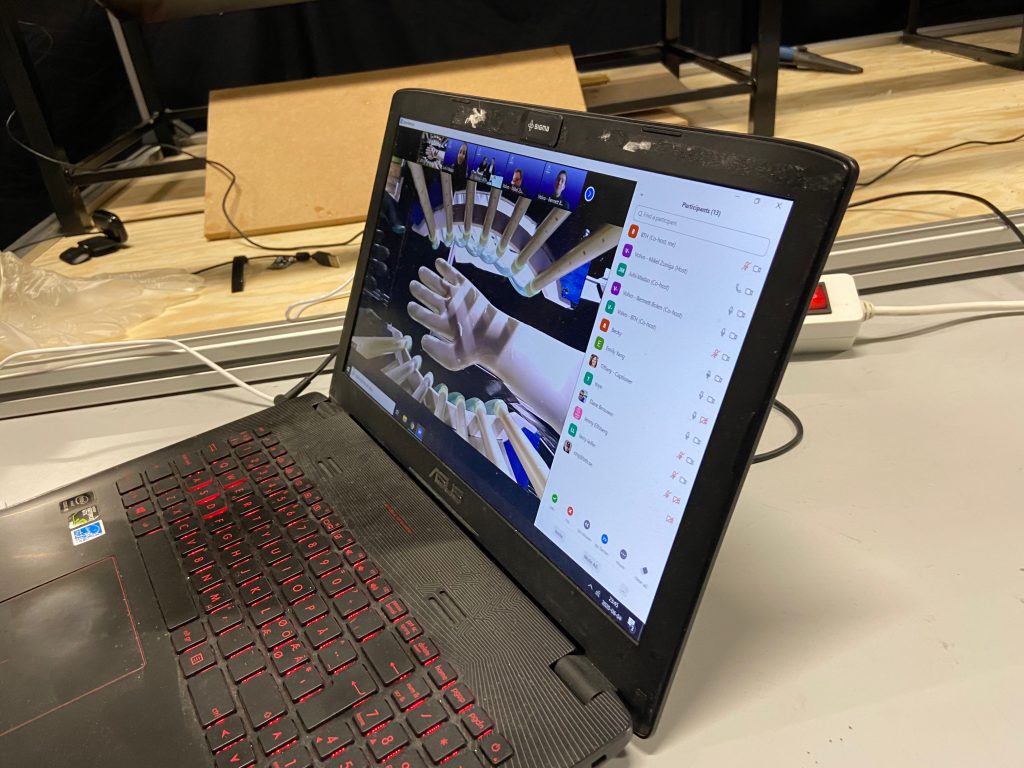
The Swedish-American team working with Volvo Group performed a professional presentation of their solution and rendered great interest in the Q&A sessions, which shows that even though we’ve been challenged and at afar, good design and presentations are doable. We topped out at some 175 active connections globally, listening in on the team presenting their result. Most definitely we had many that wouldn’t have had the chance to join in listening to the presentation, which has been a benefit of the online situation.
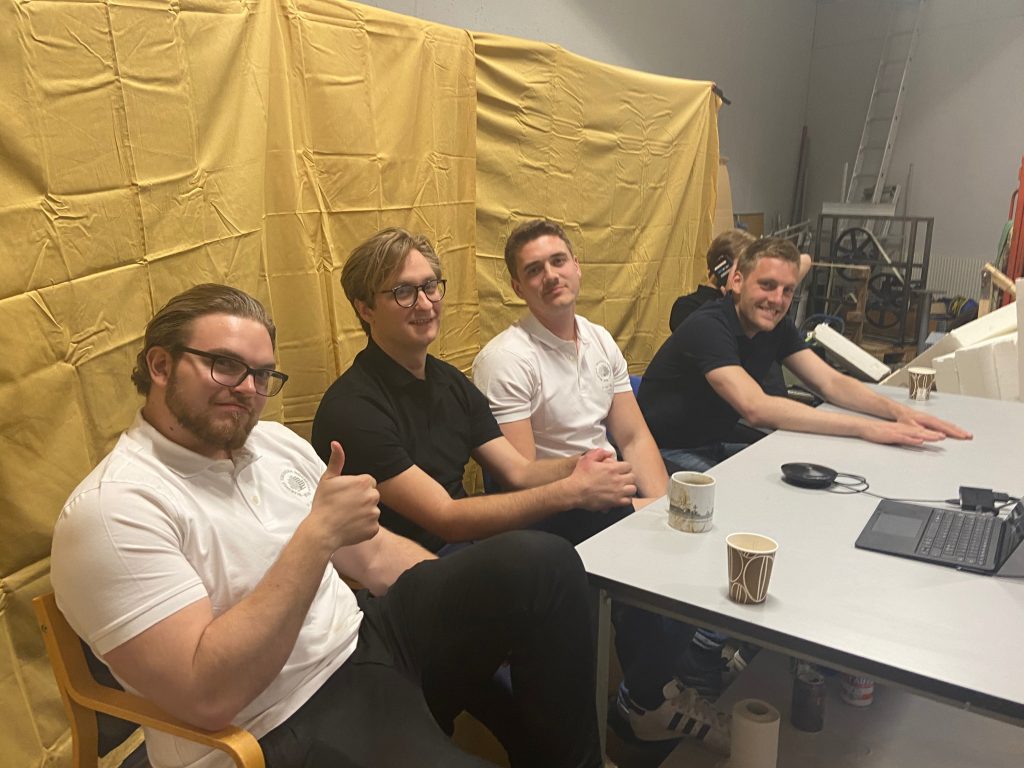
“My personal opinion is that their EXPE performance, considering both presentation and demo prototype, is a WOW.”, says liaison Jenny Elfsberg
The challenge
Going back to late 2019 the team formed in California, where they got the project running with their challenge from the Volvo liaisons was for the students to dream of a future where waste management and recycling are safe, optimized and sustainable – and with this as a starting point go out and do the legwork of needfinding, building empathy for the users they find working in this system and find opportunities for innovation that are dear to them.
This year the interesting parties consisted of Mack Trucks, Volvo Construction Equipment and Waste Management – with the two former being subsidiaries within the Volvo Group and the latter being an future customer who has great interest in innovation within the field of waste treatment and circular economy.
The students have been doing Needfinding and various design and prototyping iterations since then and explored avenues of industrial waste management to approach the wicked problem of achieving 3-zero vision of zero accidents, zero emissions and zero unplanned stops in the domain of circular waste management to achieve as a consequence much higher productivity.
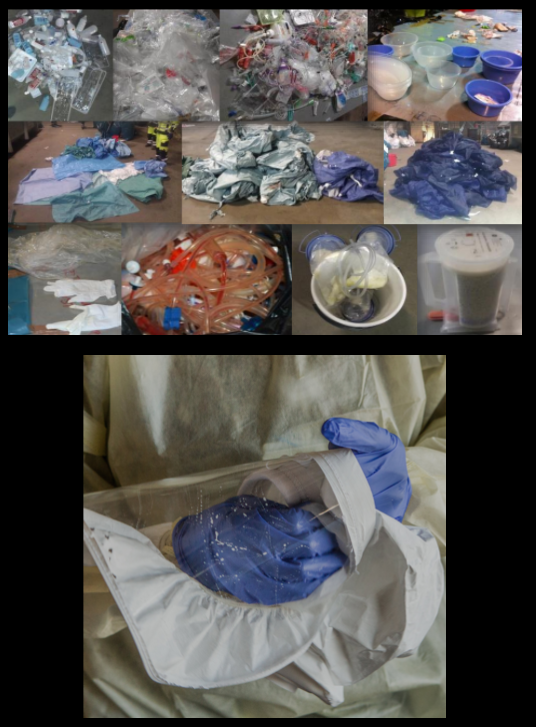
Then the circumstances changed and any chance of meeting up in Sweden to converge nor at Stanford to finish the build looked at first slim, and then was cancelled altogether.
Coronavirus throws a spanner in the works and offers an urgent need
Here though – due to the Corona pandemic situation – the students found an urgent and relevant problem from their needfinding – the reliance on large streams of single-use personal protective equipment (PPE) within many areas of society. Momentum started to build towards finding a solution of innovating the waste streams of these equipment by exploring the possibility of recycling and remanufacturing, as a proof of concept, the single use gloves that are used extensively within healthcare.
Even though production has increased globally by 40% during the pandemic, many still experience shortages and limited availability to import material in some cases. Hence, there’s a need to both reduce the waste streams and to also provide hospitals and regions with tools that make them independent.
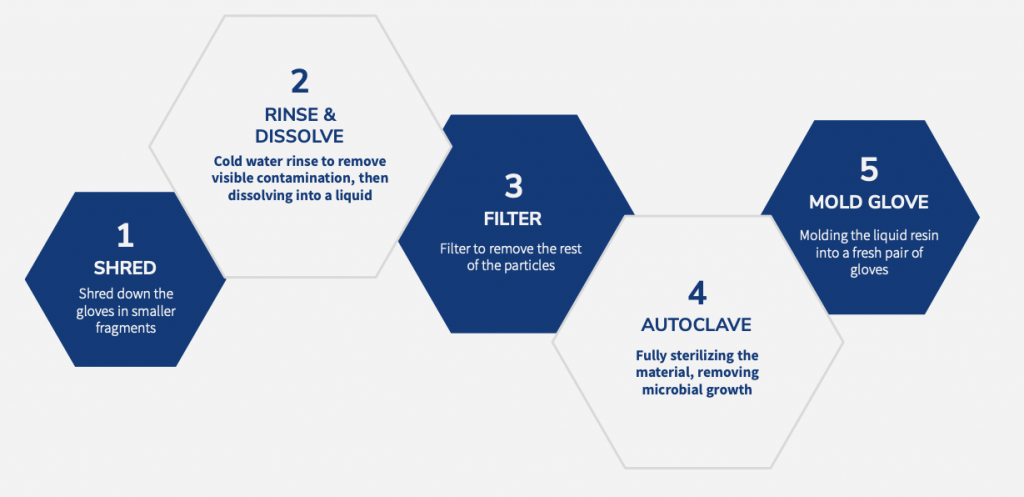
The Solution – ReGlove
Enter the ReGlove; the product is a proof of concept of a moonshot concept where a hospital would be able to be self-sufficient with PPEs by incorporating a pop-up-factory that recycles and sterilizes used equipment and from the material can remanufacture new equipment, with minimal addition of virgin material to the supply stream.
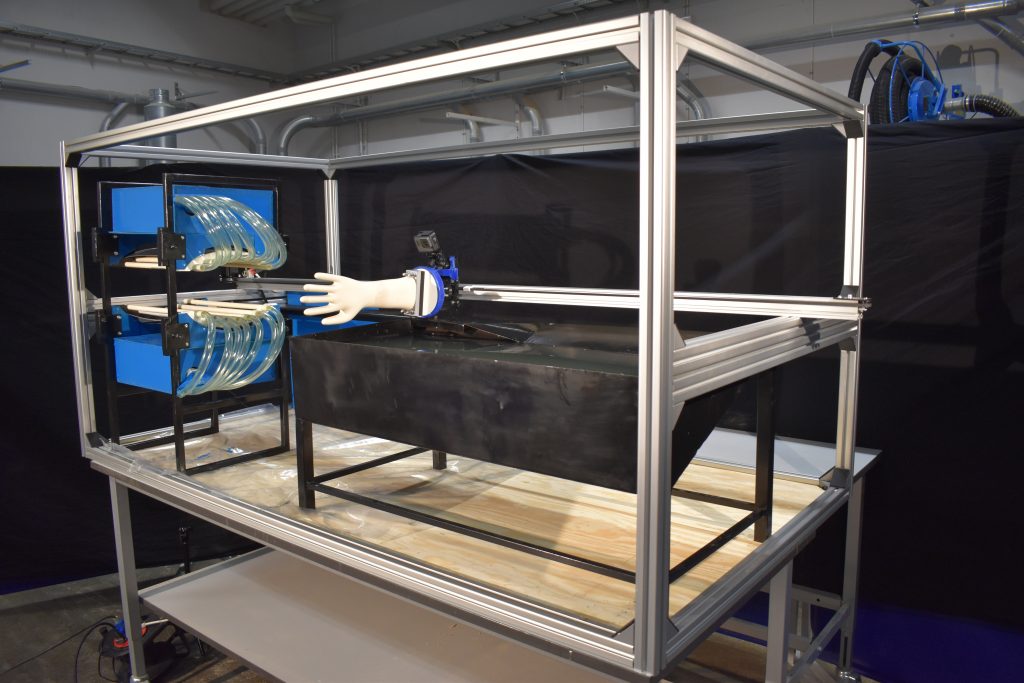
Estimates show that it would be possible to erase 1/6th [check the number!] of the waste stream, which surmounts to [insert the number of tonnes] in Sweden along (on a regular year – without) the Coronavirus.
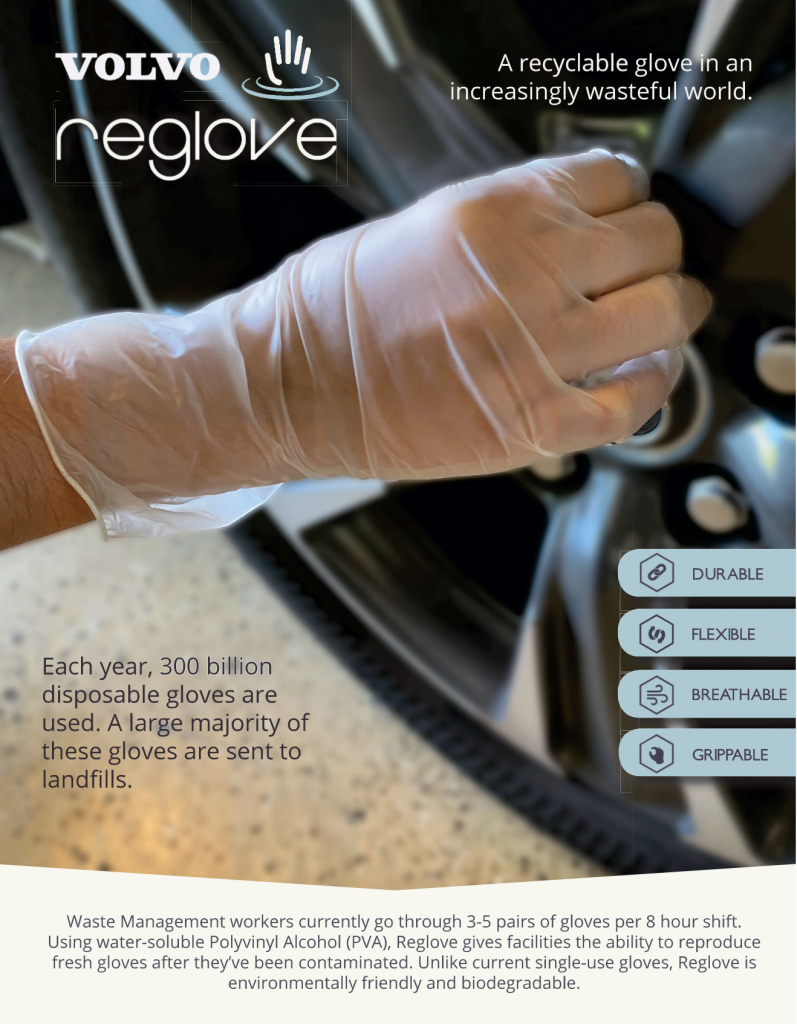
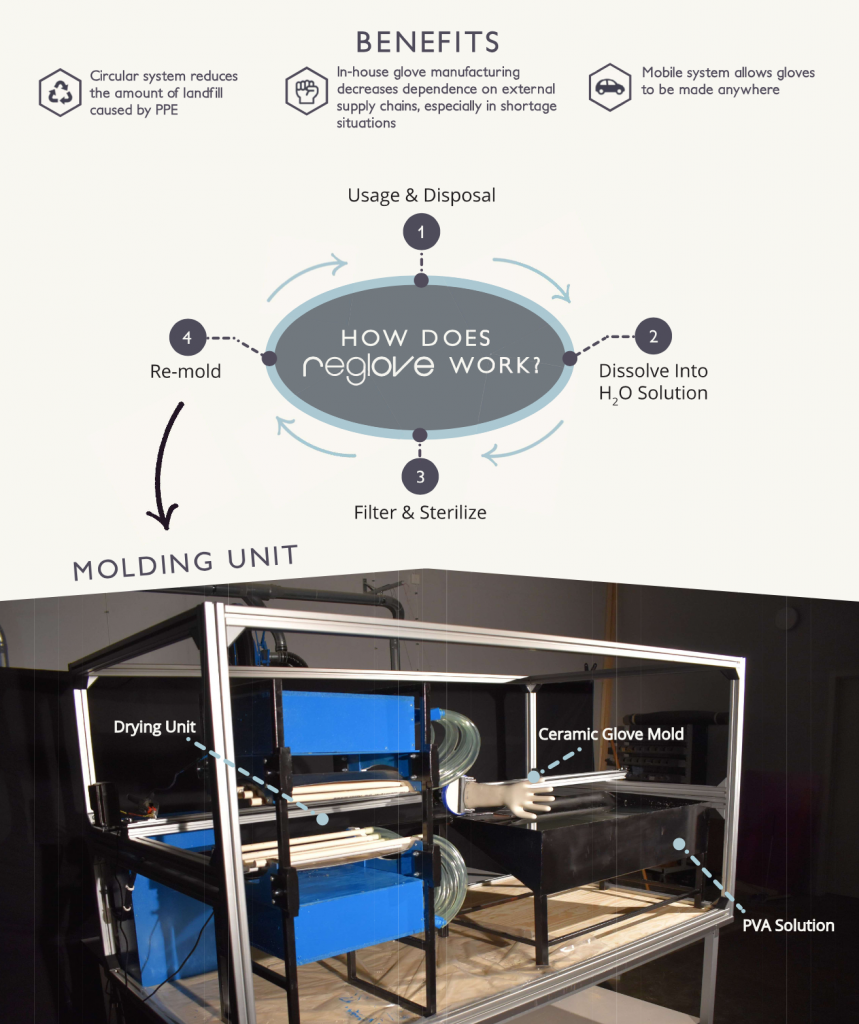
An unusual Design Thinking Process offers learning opportunities
Liaison Jenny Elfsberg, heading up Volvo Group’s Hub335 in Mountain View, CA normally would follow their design thinking work to capture Volvo’s lessons learned from the students’ process, and support the team from Silicon Valley side but, like all of us, shifted to supporting through distance technologies;
“The Volvo team this year have done an absolutely fantastic job. They have worked so well together, demonstrating a collaborative and inclusive behavior from both sides. They have respected the iterative process, never reacted negatively to any of our questions or concerns and not once used distance or time zone difference as excuses.”, says Jenny.
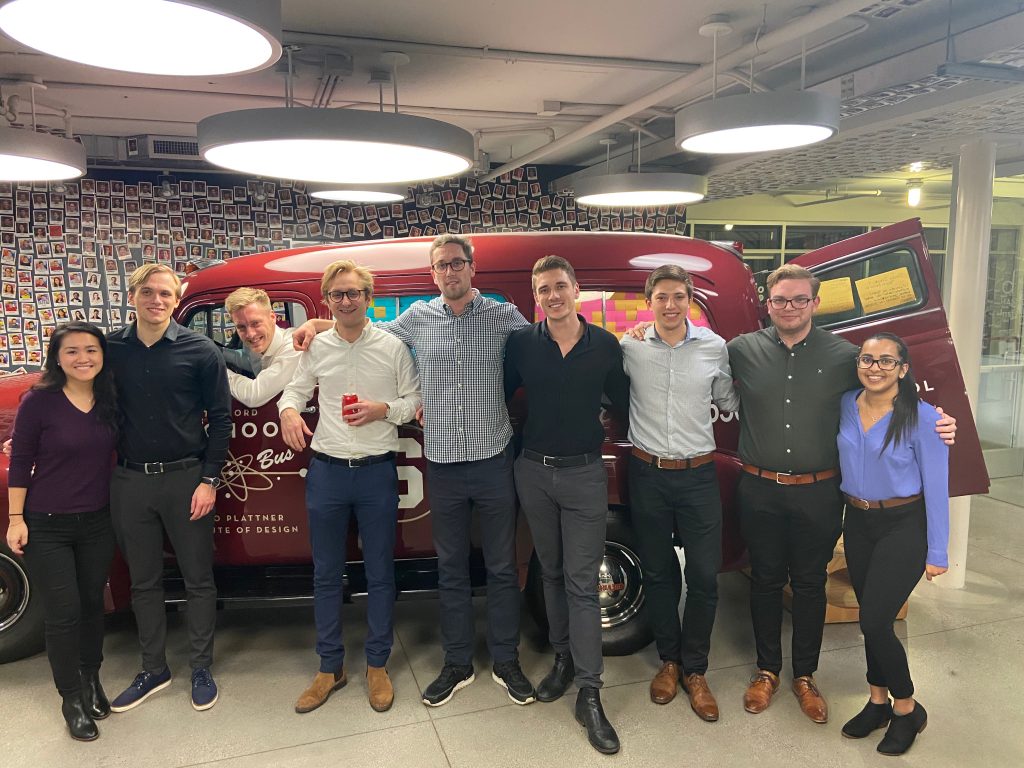
Further on from overcoming the challenges, it is interesting to see also the learning journey in design that the students have achieved, somewhat out of necessity, but also because they played the game wholeheartedly and trusted their abilities to do good design thinking.
“What was interesting to see with this year’s team is also their reflective insights into the process and coordination work that they had to undertake, basically acting as seasoned distance-savvy engineers, handing task off to one another and maximizing potential of the team as well as the limitations and circumstance of each individual in an impressive way.”, says Christian Johansson Askling, project leader at BTH.
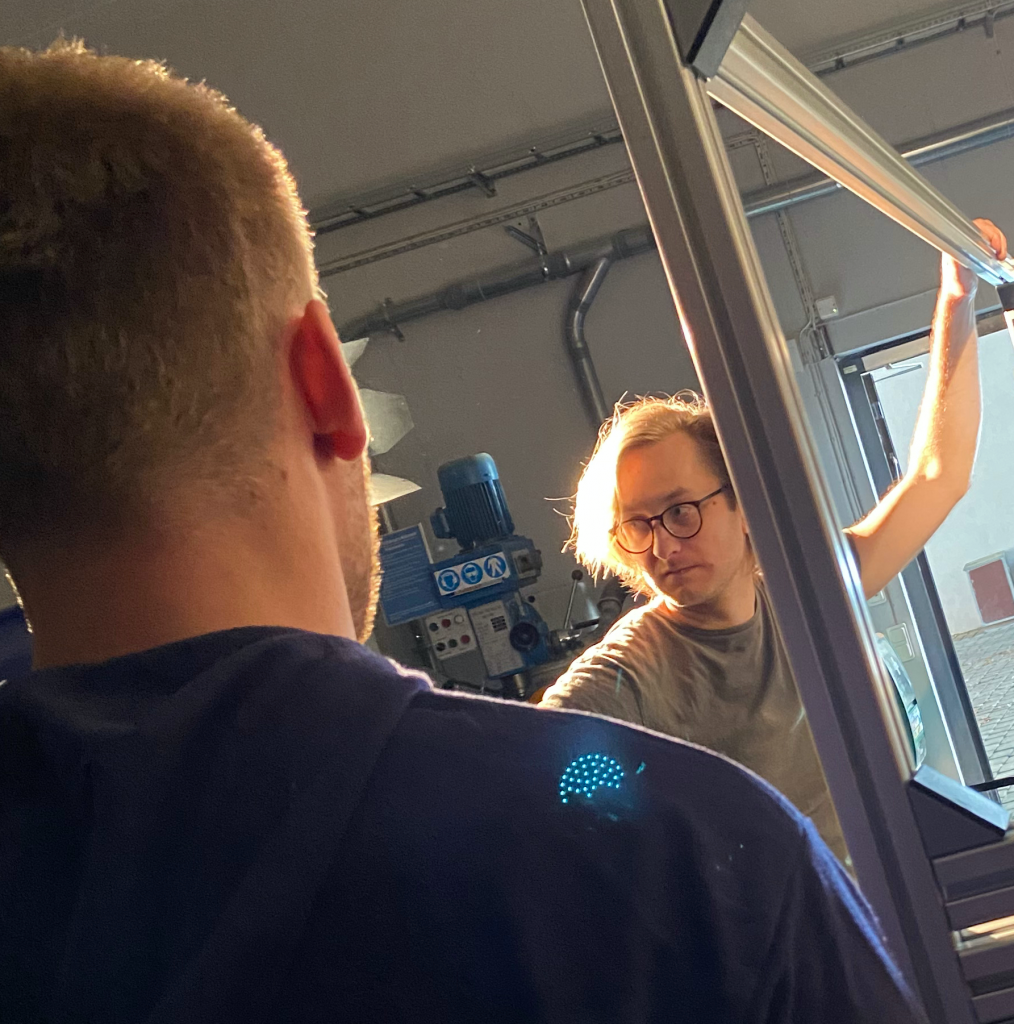
“What I loved the most, with my colleagues as audience, was how they emphasized the importance of an iterative process, the importance of low fidelity prototyping and the value of asking questions.”, concludes Jenny
Previous projects and info
The ME310 course at Stanford University is a three-quarter global design course starting in October and finishing at the EXPE event in June. The course features ten corporate-sponsored projects that all have global partner universities from around the world. For the last four years, mechanical engineering at BTH have been the only Swedish participants. Sponsors include major global brands, such as Volvo Construction Equipment, the Volkswagen Group, Renault, and SAP to name a few.
The curriculum for the course is Design Thinking, depicting an entrepreneurial approach to design with much emphasis on prototyping as an approach to open-ended ill-defined problems where the students make extensive needfinding to define the problems. This is the same as the core curriculum for the MSPI program at BTH, which means that our students are somewhat familiar with the approach to design that is practiced.
“ME310 Global Design Innovation and the Design Thinking approach is proving itself to be a valuable experience for both students and partners. For BTH students to be able to collaborate “in real life” with one of our research partners, and also with prestigious Stanford University, is simply a great experience. Challenging, but also rewarding”, says Professor Tobias Larsson of BTH Mechanical Engineering.
For more information about the ME310-project, including previous years’ projects, and PDRL’s Stanford University collaboration, see the pages listed below;
- All ME310 related
- ME310 2018-2019: Enhancing partnership between humans and vehicles in the connected society (AB Volvo)
- ME310 2017-2018: The pains of today and concerns of tomorrow (Volvo CE)
- ME310 2016-2017: From elephants to ants – from earth to Mars (Volvo CE)
- ME310 2015-2016: Human-Autonomous Machine Interaction (Volvo CE)
- ME310 2014-2015: Urban Mining (Volvo CE)
- ME310 2013-2014: Urban Mining (Volvo CE)
- ME310 2012-2013: Idéum (Volvo CE, Michano AB)

3 Comments on “Stanford ME310 project wraps up with EXPE – Online”
Comments are closed.